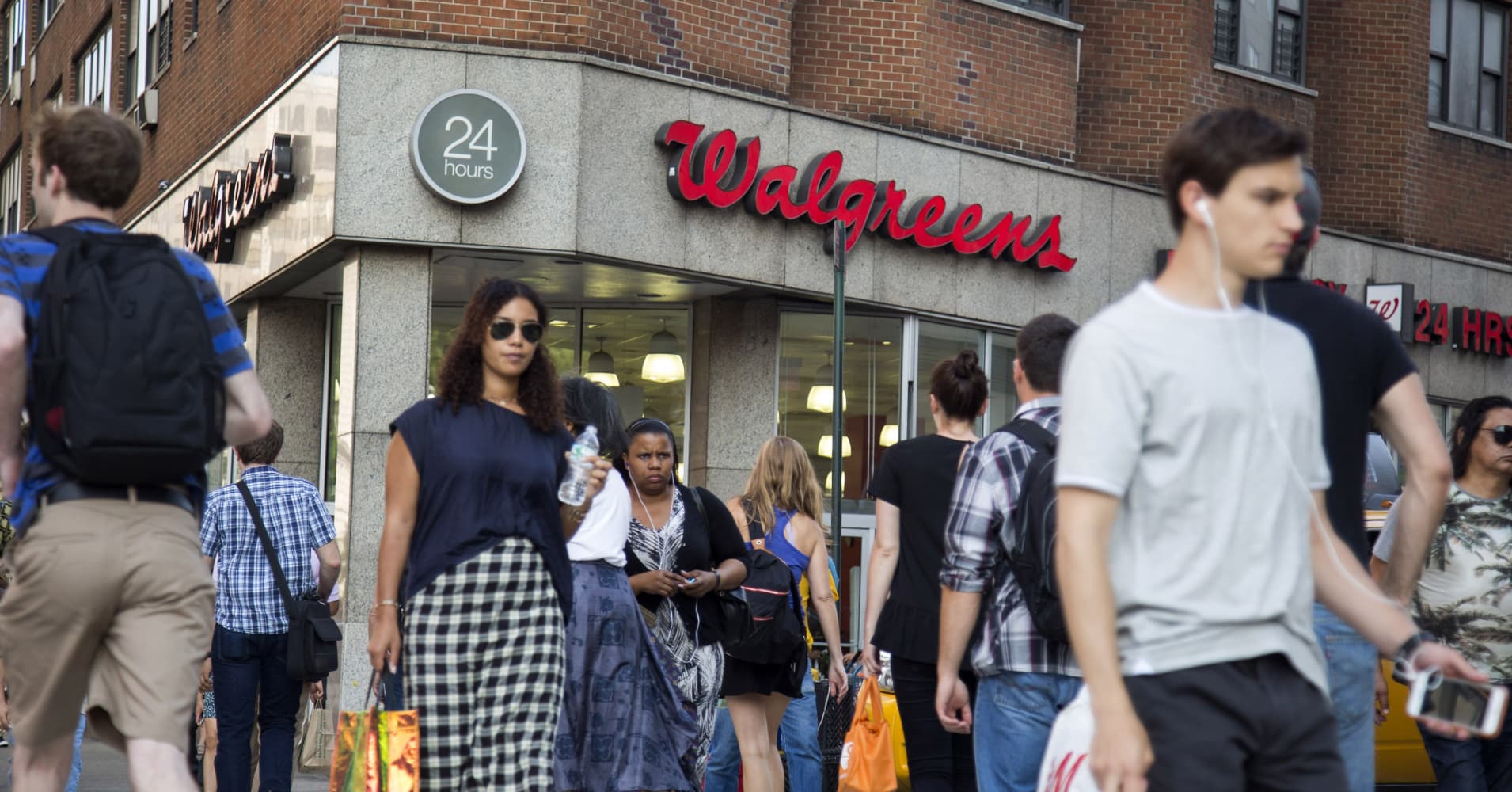
Walgreens Boots Alliance reported quarterly earnings and revenue that missed analysts' expectations and lowered its forecast for 2019 in what CEO Stefano Pessina called the "most difficult" quarter since acquiring European drugstore chain Alliance Boots in late 2014.
The company now expects full-year earnings for 2019 to be roughly flat, compared with its previous forecast of 7 to 12 percent growth, it said Tuesday. The company also said it would cut more than $1.5 billion in costs by fiscal 2022, up from the $1 billion it announced last quarter.
"A number of the trends we had been expecting and preparing for impacted us significantly more quickly than we had anticipated," Pessina told analysts on a call to discuss Walgreens' performance during the second quarter of fiscal 2019, which ended Feb. 28.
Walgreens' shares slid by more than 12 percent, on pace for their worst day since Aug. 6, 2014, when they lost 14.3 percent. The company dragged down its competitors, sending CVS shares tumbling nearly 4 percent and Rite Aid's stock down by about 8 percent, though it trades for less than $1 a share.
For more on investing in health care innovation, click here to join CNBC at our Healthy Returns Summit in New York City on May 21.
Walgreens reported adjusted earnings of $1.64 per share during the quarter, missing analysts' estimates of $1.72 per share, according to data compiled by Refinitiv. Revenue also fell short, coming in at $34.53 billion. Analysts had been looking for $34.56 billion.
It generated $1.16 billion in net income, or $1.24 per share, down from $1.35 billion, or $1.36 per share a year earlier.
On an adjusted basis, which excluded foreign currency fluctuations and a few other items, Walgreens said it earned $1.64 per share, below the $1.72 per share analysts were expecting.
Generic drug prices declined and pharmacy benefit managers paid Walgreens less, weighing on the pharmacy chain in the quarter, Pessina said. Walgreens also faced "consumer market challenges" in the U.S. and the U.K., he said.
Same-store sales declined 3.8 percent, which Walgreens said was primarily because of a weak cough, cold and flu season compared to the previous year. Walgreens is working with LabCorp, Humana, Sprint and others on everything from offering senior care services to selling phones in their stores.
Co-Chief Operating Officer Alex Gourlay told analysts Walgreens is "pleased" with the progress its making on its partnerships. He said the company is working closely with Kroger's executive team to "determine how best to unlock future growth and synergies." Walgreens paired up with the Kroger in October to sell groceries in some Walgreens stores and expanded the pilot in December.
Drugstores are also trying to diversify their products and experiment with new ways to get people into their stores. Walgreens last week said it will sell CBD products in about 1,500 of its stores, following CVS. Rival CVS is changing up its business model after buying health insurer Aetna for $70 billion late last year.
Pessina on Tuesday said Walgreens still isn't interested in pursuing any deals right now.
"We are constantly reviewing a certain number of companies," he said. "Don't ask me the names I cannot give you the names, but of course, until now, we have not found the right numbers to do a combination with these companies."
Executives tried to ease concerns that it would cut costs too much and starve the business. Chief Financial Officer James Kehoe said Walgreens will invest about $1 billion over the next three years between operating expenses and capital.
"Approximately 80 percent is operating expense, so think about it for a minute. In one year, we'll be putting in $300 million to boost the partnerships and to boost our capabilities on digitalization of the company, so we're not going through the business for the sake of hitting cost cutting," he said.
Executives from Walgreens and rival CVS Health have warned investors in recent months that profits might not be all that fat this year. The Trump administration has been pressuring drugmakers and pharmacy benefits managers to lower consumer prices, both of which may cut into the bottom line for drugstore chains.
While analysts were expecting a bad quarter, they weren't prepared for it to be as bad as it was and for Walgreens to fall short in so many different areas.
"The magnitude was significantly worse," Jefferies analyst Brian Tanquilut told CNBC.
Walgreens also bought back more than $2 billion of its own stock in the quarter, bringing its total stock buybacks for fiscal 2019 to $3.11 billion so far, he noted. The company repurchased $5.23 billion of its shares all of fiscal 2018, according to the company's financial statement. Stock buybacks can make the company's profits look better because there are fewer shares outstanding, thus boosting earnings per share.
Evercore analyst Ross Muken in a note to clients said "this was truly a terrible print, as most metrics missed materially." This is the first time Pessina has missed quarterly guidance since he was named CEO in July 2015, he added.
CORRECTION: This story was updated to correct the company's adjusted earnings estimate. It was $1.72 a share.
https://www.cnbc.com/2019/04/02/walgreens-boots-alliance-q2-2019-earnings.html
2019-04-02 15:06:23Z
52780255268669
Bagikan Berita Ini














0 Response to "Walgreens shares slide as drugstore chain misses earnings estimates, lowers 2019 forecast - CNBC"
Post a Comment